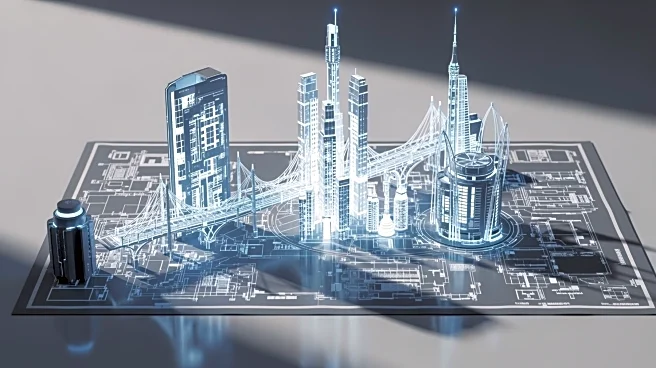What's Happening?
Ferrovial Construction, a civil engineering company headquartered in Amsterdam, is emphasizing the integration of digital innovation and risk management in its U.S. infrastructure projects. The company has been expanding its footprint in the U.S., undertaking
complex projects such as the I-66 corridor in Virginia and the New Terminal One at JFK Airport in New York City. Ignacio Gastón, CEO of Ferrovial Construction, discussed the company's approach to balancing long-term investments with short-term risks, such as inflation and funding challenges. Ferrovial's strategy involves leveraging technology for risk management and collaborating with partners to allocate risks effectively. The company is also preparing for political and regulatory changes by aligning its projects with evolving priorities, such as expanded Transportation Infrastructure Finance and Innovation Act loans.
Why It's Important?
The emphasis on smarter infrastructure projects by Ferrovial Construction is significant as it reflects a broader industry trend towards digital transformation and risk management in construction. This approach not only helps in completing projects on time and within budget but also enhances the resilience of infrastructure against economic volatility. By adopting advanced technologies like AI for predictive maintenance and real-time monitoring, Ferrovial is setting a precedent for other companies in the sector. This could lead to more efficient and sustainable infrastructure development, benefiting local economies and communities by improving mobility and supporting growth.
What's Next?
Ferrovial Construction plans to continue its focus on integrating digital tools and risk management strategies in its projects. The company is likely to expand its use of AI and other technologies to further enhance project outcomes. As political and regulatory landscapes evolve, Ferrovial will need to stay agile and responsive to new requirements, potentially influencing how infrastructure projects are financed and executed in the future.
Beyond the Headlines
The shift towards smarter infrastructure projects has deeper implications for the construction industry. It highlights the growing importance of technology in reducing uncertainty and improving project outcomes. This trend could lead to a more stable asset class in infrastructure, attracting more investors and fostering long-term economic growth. Additionally, the focus on risk management and collaboration may set new standards for project execution, influencing industry practices and policies.















